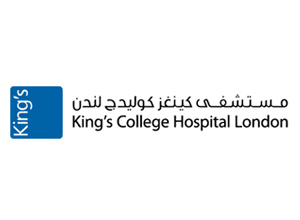
October marks the start of National Breast Cancer Awareness Month in the UAE, and with it comes a host of great events and initiatives across Abu Dhabi. Check out our latest feature for a round-up of the best events and expert information from Doctor Rachel Leiper, a specialist in Family Medicine, at the King’s College Hospital London.
Breast Cancer Prevention & Screening
Breast cancer is the most common cancer in women worldwide with one in nine women having to deal with it in their lives. While increasingly effective treatment means that fewer and fewer women are dying of it, what can women do to prevent it?
As usual much of the prevention lies in a healthy lifestyle. We know that if you are fit and active you may be able to decrease your risk of breast cancer by a third. Likewise, it is really important to maintain a healthy weight as excess fat encourages breast cancer. Breast feeding is good for your breasts, as well as for your baby. Those who have breast-fed have lower rates of breast cancer.
Also it is really important to examine your breasts, not just to find a lump but to get used to the feel of your own breast tissue and nipples as everyone feels different. By knowing how they normally feel you will be quick to pick up any abnormalities so you can go to see a doctor. Changes to be aware of are lumps, changes in the size or shape of the breast, thickening or dimpling of some of the skin of the breast, changes in the shape of the nipple, discharge from the nipple and very occasionally a skin rash like eczema on the nipple.
The doctor will most likely be able to reassure you. Most lumps are not cancerous. They may be a cyst or a little clump of glandular tissue, but the only way to be sure is to get it checked out. The doctor will examine your breast and your armpit and will probably organise a scan or x-ray to be sure.
Many countries have introduced breast screening programmes for women. In Abu Dhabi, this is recommended every 2 years for all women over 40 as it can potentially pick up breast cancer before you can feel it. This improves the chance that treatment will stop the cancer spreading. But don’t stop examining your own breasts because you are on a screening programme. Some women do find lumps in between scans, so make sure you go to see the doctor as soon as you can.

Screening and Early Detection
Detection of breast cancer at an early stage and the affective early treatment is the best tool currently available to reduce deaths and increase number of women surviving breast cancer diagnosis.
The earlier the diagnosis is made, the better the chances are in terms of survival and avoiding drastic treatments.
Mammography
A mammogram is the best screening tool used today to find breast cancer early. It is an X-ray picture of the breast. A mammogram can find cancer before you notice any problems in your breast.
It can find cancer when it is small and easier to treat often without losing the breast. It is recommended that all women have a screening mammogram every two years starting at age 40 (and perhaps earlier if you have a family history of breast cancer).
To book your screening mammogram appointment, Click here
Clinical Breast Examination (CBE)
Your doctor and some other health care providers have been trained to perform a thorough physical examination of your breasts. They can verify that you are doing BSE the proper way. If you have a family history of breast cancer, your doctor is ready to discuss mammography screening guidelines and scheduling along with other options to limit your personal risks.
Breast Self-Examination (BSE)
Every woman should check her breast for lumps, thickening, or other changes every month. By examining your breast regularly, you will learn how your breasts normally feel. Moreover, practicing monthly BSE may give you added peace-of-mind; it’s a routine that gives you the opportunity to spot changes that need your doctor’s attention.
The best time for Breast Self Exam
6 – 10 days after first day of your period, when the breasts are not tender or swollen. After menopause or hysterectomy, examine your breasts on the same day of each month. You may choose any date but it should be one you will remember.

How To: Self Examination
Step 1: FEEL YOUR BREASTS WHILE LYING DOWN
- Lie down on your back with a pillow under your right shoulder
- Use the pads of the three middle fingers on your left hand to check your right breast
- Press using light, medium and firm pressure in a circle without lifting your fingers off the skin
- Follow an up and down pattern
- Feel for changes in your breast, above and below your collarbone and in your armpit
- Repeat on your left breast using your right hand
- These steps may be repeated while bathing or showering using soapy hands.
Step 2: LOOK AT YOUR BREAST WHILE STANDING IN FRONT OF THE MIRROR
- Look for changes:
- Hold arms at your side
- Hold arms over your head
- Press your hands on your hips and tighten your chest muscles
- Bend forward with your hands on your hips
What are you looking for?
See your health care provider right away if you notice any of these breast changes:
- Lump, hard knot or thickening
- Swelling, warmth, redness or darkening
- Change in the size or the shape of the breast
- Dimpling or puckering of the skin
- Itchy, scaly sore or rash on the nipple
- Pulling in of your nipple or other parts of the breast
- Nipple discharge that starts suddenly
- New pain in one spot that does not go away
Did you do your breast self-exam correctly? Click on this link to find out: http://www.komen.org
Screening of High Risk Women
A woman is considered at higher risk of developing breast cancer if she has one or more of the following criteria:
- Previous treatment with chest radiation at a young age (between age of 10-30)
- Previous history of Breast Cancer
- Lobular carcinoma in situ (LCIS) or Atypical ductal hyperplasia (ADH) on previous breast biopsy
- Strong family history or genetic predisposition
- Women who have a life time risk of 20-25% as defined by models largely dependent of family history
- 5-years risk of developing invasive breast cancer of ≥ 1.7 % in women aged ≥35 (per Gail model )
- The Health Authority Abu Dhabi recommendation for screening women at high risk includes:
- Breast Self-exam, monthly
- Clinical Breast Exam, every 6-12 months
- Annual Mammography screening
- Annual MRI screening – as indicated
- Referral to genetic counselor –for strong familial/genetic predisposition
If you are at higher risk, talk to your healthcare providers. Screening recommendation is individualized for each women based on type of risks. It might be initiated at earlier age (earlier than 40 years) and with different screening tools, as indicated.
For more information about how to self-examine, or to book your mammogram click here – https://www.haad.ae/simplycheck/tabid/100/Default.aspx
You can also visit – www.kingscollegehospitaldubai.com

